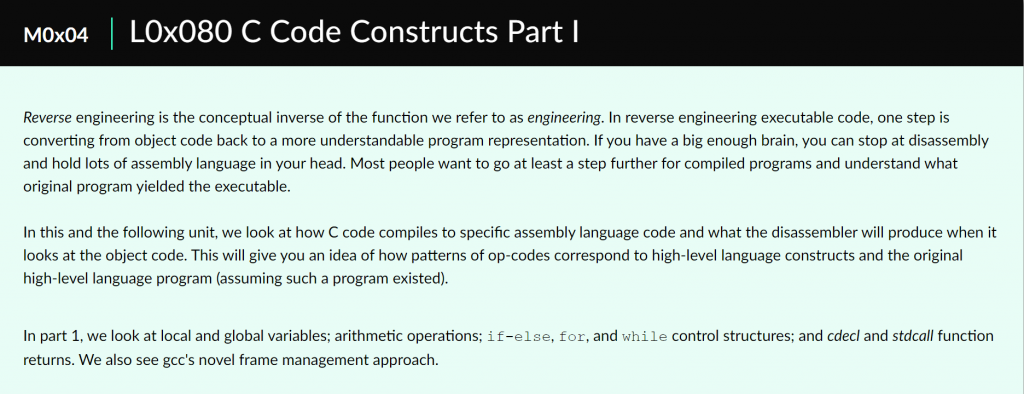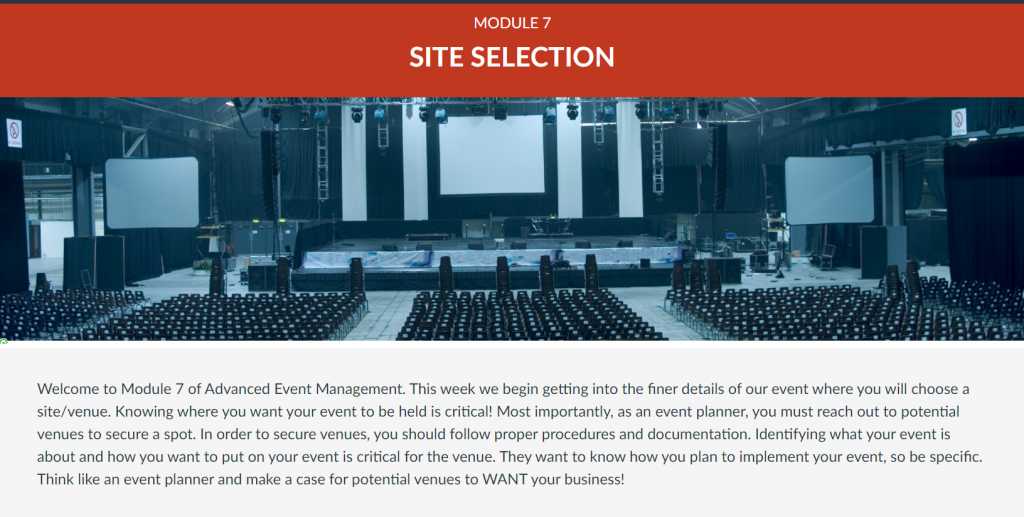Introduction Section
For the Module Introduction, it’s beneficial for students to read more about the module topics and make real-world connections (where applicable). Oftentimes, the overview page is the first thing students look at when starting the module and/or when they need to determine the workload for the week. The introduction should not only present the “what” and the “why” but also the “how” – what are they learning? Why this topic and why now? How are they learning it?
Introduction Examples
Example 1
Reverse engineering is the conceptual inverse of the function we refer to as engineering. In reverse engineering executable code, one step is converting from object code back to a more understandable program representation. If you have a big enough brain, you can stop at disassembly and hold lots of assembly language in your head. Most people want to go at least a step further for compiled programs and understand what original program yielded the executable.In this and the following unit, we look at how C code compiles to specific assembly language code and what the disassembler will produce when it looks at the object code. This will give you an idea of how patterns of op-codes correspond to high-level language constructs and the original high-level language program (assuming such a program existed).In part 1, we look at local and global variables; arithmetic operations; if-else, for, and while control structures; and cdecl and stdcall function returns. We also see gcc’s novel frame management approach.
See this example applied in the course

Example 2
Welcome to Module 7 of Advanced Event Management. This week we begin getting into the finer details of our event where you will choose a site/venue. Knowing where you want your event to be held is critical! Most importantly, as an event planner, you must reach out to potential venues to secure a spot. In order to secure venues, you should follow proper procedures and documentation. Identifying what your event is about and how you want to put on your event is critical for the venue. They want to know how you plan to implement your event, so be specific. Think like an event planner and make a case for potential venues to WANT your business!
See this example applied in the course
